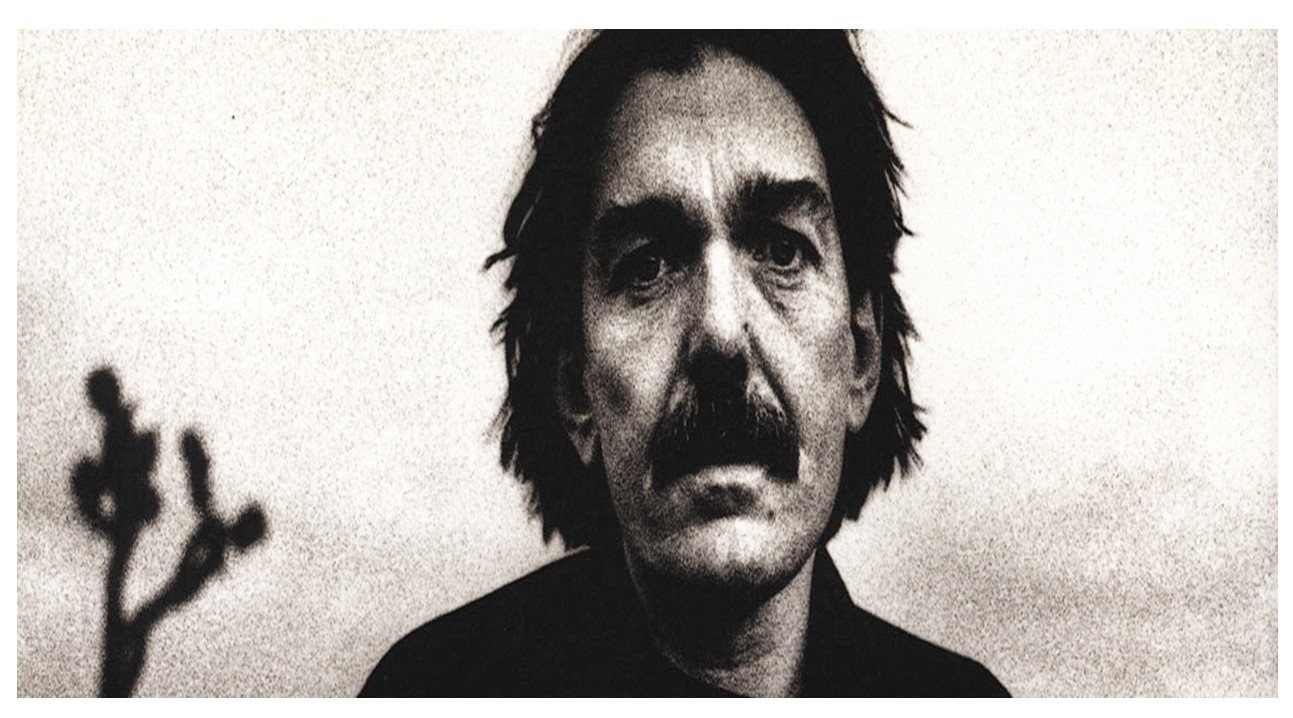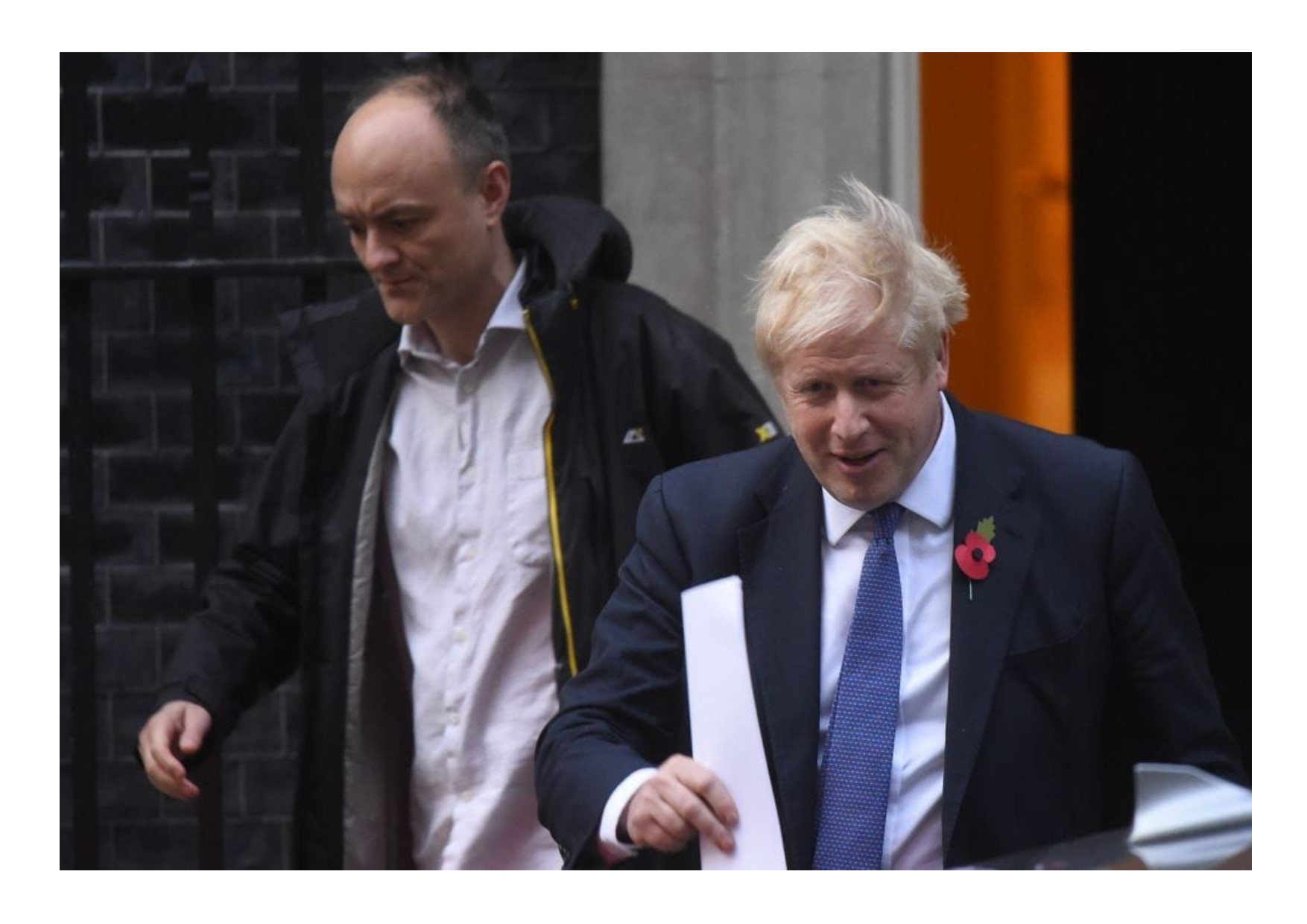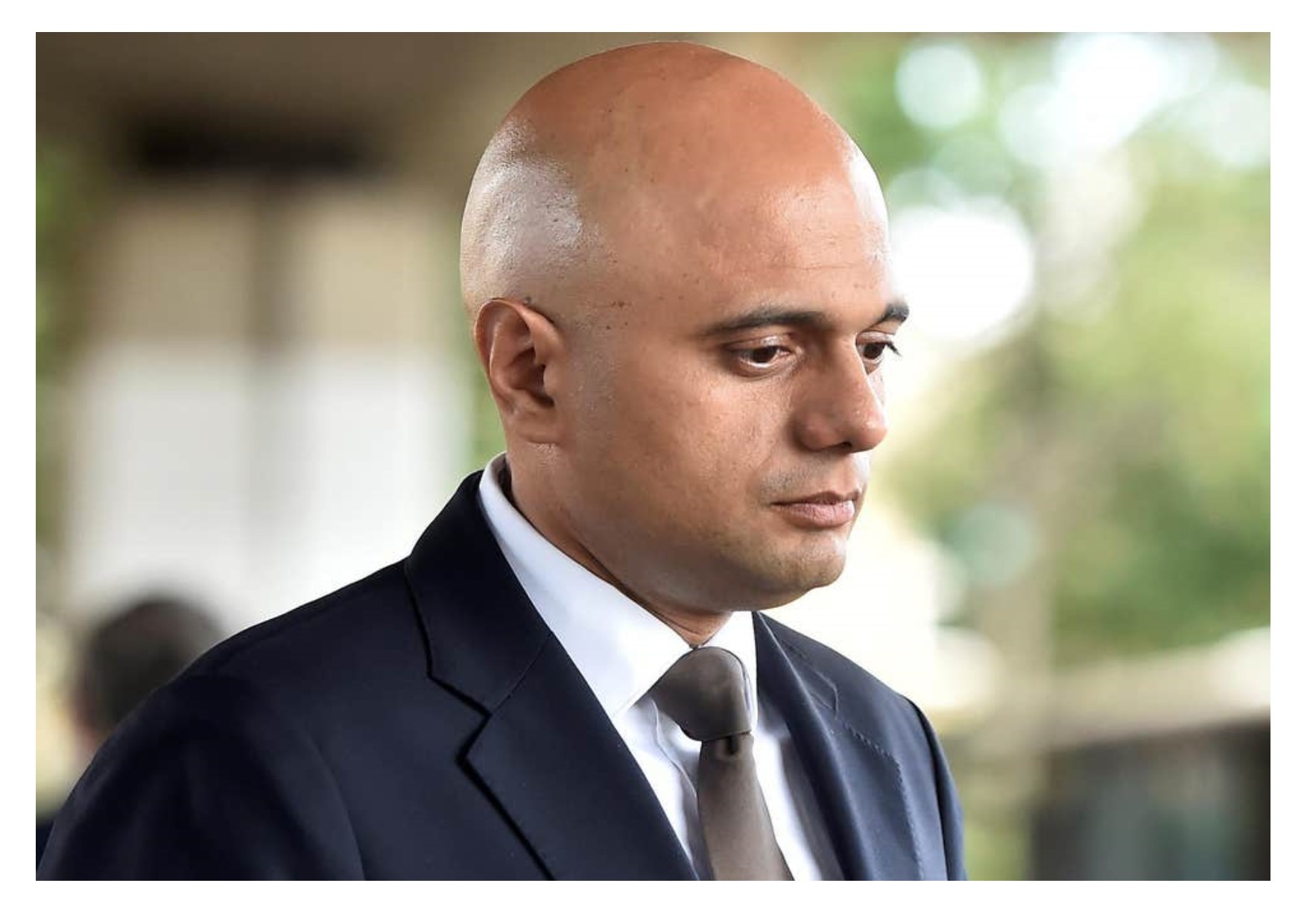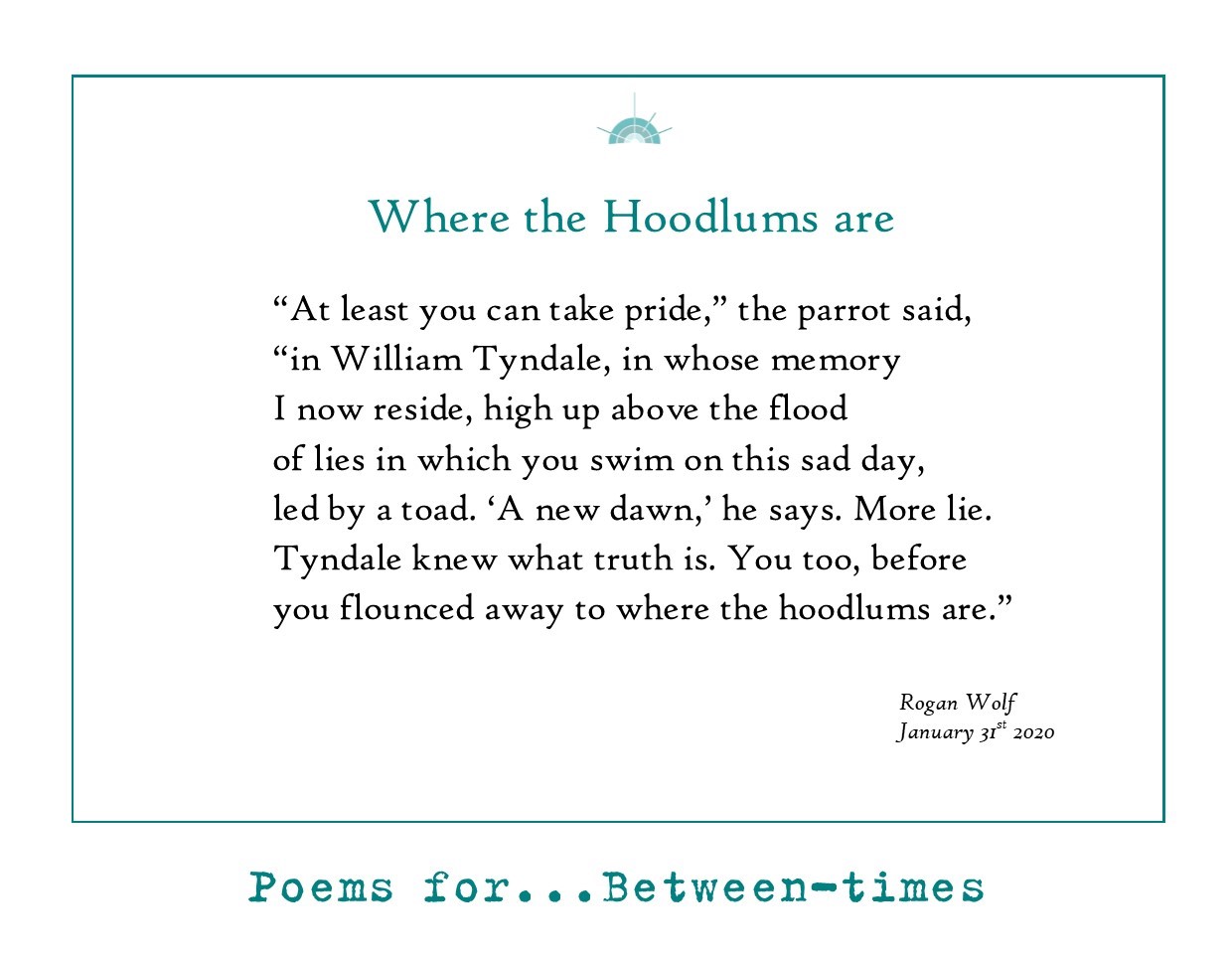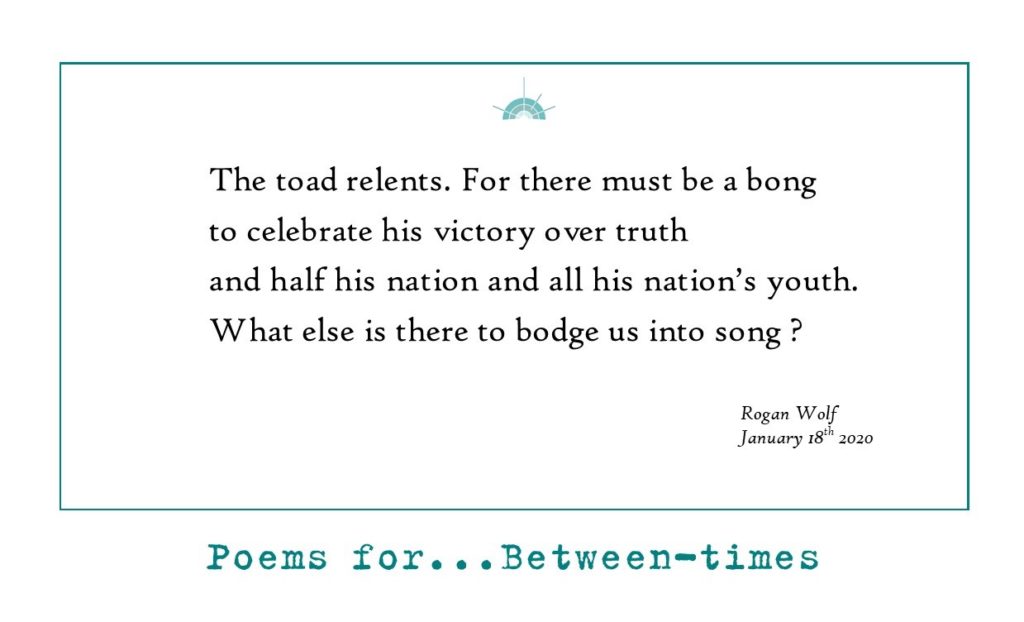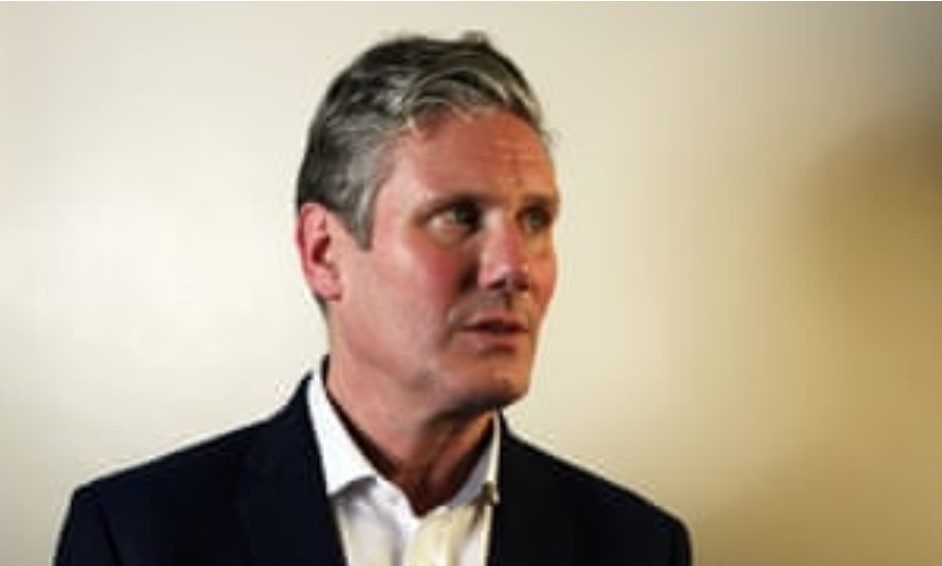
I want to talk about the British Labour Party which – despite everything – still occupies the ground I look to for the beginning of this nation’s regeneration and return to health.
But “ground” is one thing ; the withered and stunted vegetation I see presently over-running and littering that ground, is another.
To understand better why the Party is presently so choked, so ineffective outside its own circles, so splintered and dysfunctional within them, I want to explore a bit what fundamentalism means, and what is “leadership,” and where “quality” fits in. And I might name a few beasts along the way, items and realities which – through being so little named – are haunting and hurting the Party all the more.
The immediate context is, of course, Corbyn’s disastrous defeat in the recent UK general election, his consequent resignation, and the present weirdly stretched-out contest to establish his successor. I myself shall be voting for Keir Starmer. If he succeeds in that vote, he will inherit a profoundly dysfunctional Party and will have his work cut out to make it fit for any constructive purpose. If he loses, the Party is anyway finished.
It was Corbyn’s particular politics (or his translation of them) – as well as his ineffectiveness and ineptitude as leader of his Party, as well as the way he presented himself and his party to the nation – which were rejected so emphatically last December, at this crucial time for our country. And yet, in the contest for his replacement, he still seems to maintain a crippling influence over the proceedings. Mystifyingly, a significant number of people within the Party seem to want to carry on down the same self-indulgent branch-line to nowhere that he followed. As an example, I am writing this paragraph on February 19th 2020 and have had a look at the Labour Party website today. It remains unchanged since before the election in December. There is Jez all over it, campaigning. And “Time for a change,” it says. How true. How true. And time for some plain competence. Time for reality. Time for coming to.
Ancestry – the Inheritance
But let’s start with some history. What Labour is now – and what it is failing or refusing to become instead – might have something to do with where it came from. Or, where it came from might at least provide us with some context against which to assess its present predicaments. I shall be as brief as possible here, in order then to draw a couple of conclusions.
The Labour Party was formed late in the nineteenth century, as a result of dramatically changing social conditions and new political opportunities. For a bit more detail than I’m about to give, here is the relevant link on Wikipedia.
Crudely, it can be said that, as the Liberal Party (once called the “Whigs”) had emerged some decades previously to give political representation and influence to the emerging middle or mercantile class, so now the Labour Party would give representation and influence to the working or “labouring” class.
The emergence of both these parties, of course, had as its background the Industrial Revolution and the UK’s shift away from a largely agricultural and rural economy towards an urban one based on manufacturing industry. Mill, factory and mine had become the centres around which huge numbers of lives revolved, surely the majority of the nation’s populace.
The Party’s background also includes a long succession of Acts of Parliament, throughout the nineteenth century and into the twentieth, progressively enlarging the electorate, the percentage of the population entitled to vote.
Two points to make, on the back of these bald facts :
1/ the Labour Party emerged at a particular time in the context of, and in response to, particular conditions, conditions which of course did much to shape it. Over hard decades it achieved great things, on behalf of the class it represented and to the benefit of the nation as a whole. But time runs on and conditions change. This nation’s economy is no longer based on manufacture as such ; and the labouring class is not nearly so distinct an entity as it was, nor – in terms of plain political muscle – as crucial to the economy and therefore as powerful a voice.
No party can or should survive whose life-force still relies on old frames of reference, previous cosmologies, old moorings, beachheads for curative action no longer directly applicable, animating only people formed and still rooted in the past – and maybe minor figures – old dinghies, not ships.
For there will have been a shift, maybe unnoticed by the activists themselves. At some point, those initial frames of reference will no longer stem from, and speak to, other people’s urgent and present reality ; at some point and all too easily, those frames become mere echo chambers, familiar reference-points, thought-patterns and career-paths just for the Party activists themselves, members of the Party “family.” Dynamics change. Motivations change. Incentives change. The quality and kind of activist change. For a Party to remain an effective force, a real catalyst for social good and, in our present perilous times, even for our and democracy’s survival, it must put itself under constant review – its aims, its composition, its structures, its hierarchies, everything. Refresh. Refresh.
2/ The Labour Party would not exist had it not been willing from the outset to work in alliance with other groups with similar aims. Yes, its emergence had much to do with extending the work of the Trade Union movement into parliament. But Labour was never, and is not, just a party of the Unions. It was the result of, and was made possible by, a set of alliances across a broad front of reform-minded activists. I quote from the Wikipedia entry I referred to earlier : “In addition, several small socialist groups had formed around this time [1870], with the intention of linking the movement to political policies. Among these were the Independent Labour Party, the intellectual and largely middle-class Fabian Society, the Marxist Social Democratic Federation and the Scottish Labour Party.
And, thirty years later, Labour’s first leader, Keir Hardy, had the following motion passed at a meeting in 1900, that they would establish “a distinct Labour group in Parliament…which must embrace a readiness to cooperate with any party which for the time being may be engaged in promoting legislation in the direct interests of labour.”
And I would add a bit more, on this point. Various groups are mentioned above. But there were more which contributed and to think just in terms of distinct groups and change-agents is anyway perhaps a bit misleading. These groups were merely part and reflective of a wider picture. For instance, the co-operative movement eventually combined with emergent Labour ; but the co-operative movement’s beginnings were more social and self-help and economic than political and it ranged wide and involved lots of different networks, educational as well as social. And there were ties and connections with various religious groupings also seeking social justice, reform and amelioration in industrial and urban Britain – the Methodists, the Quakers… Thus, the Labour Party became the political expression of a wide-ranging social movement and uprising and in some ways was the result of that movement, the crest of a great wave. For across the country at that time, there was the deepest possible sense of urgency. The Party came into existence to address and correct human conditions across much of society, that were plainly unacceptable by any moral standard.
What has happened in more recent years, to make Labour not merely so reluctant to work in partnership with other groups, but unable even to accept different perspectives within its own boundaries ? For a significant number of Corbyn’s supporters, it is not enough even to be “Labour” – you must associate yourself with their own exclusive and narrow wing within Labour.
But manifestly, that way ensures annihilation for Labour as a force for change in Society. Is that what the “Far Left” want ? Surely not. But it suggests that being a “force for change in Society” may no longer be their primary concern here. That is a strange thing to say, perhaps, but these are strange, bewildering and tumultuous times and I am not suggesting any intention or behaviour that is conscious. In such times, many of us might actually just yearn to have something to hang onto in the mind, something that feels solid, reassuringly clear-cut or comfortingly familiar, or both – lines that sing to us, places of refuge, a castle on a hill. But nothing to do with Society as it really is, out there.
People lost at sea may not be particularly discerning when it comes to grabbing hold of something that might keep them afloat.
But, in the present day, the consequences for all of us of no change, or not enough, or the wrong sort, do not bear thinking about. So forces for change, change towards health and sanity, have to make themselves fit and inclusive, as never before.
The Labour Conference 2019
The Labour Party has apparently looked hard for the reasons for its catastrophic electoral failure in December, which has allowed a grossly unworthy, fraudulent man to form a government and “take control” of this nation for the next five, dangerous years. He and his gang disgrace even their own Conservative Party and are a threat to all of us, including themselves and their families.
I haven’t read all the conclusions so far arrived at by the Labour reviewers. But those I have are simply pathetic. They are not conclusions, but symptoms of pathological denial, myths. Rebecca Long-Bailey’s “Ten out of ten” as a score for Mr Corbyn’s leadership stays in the mind and sticks in the gullet. Another phrase that has stood out for me is the headline of a recent article by Owen Jones : “All the Labour candidates have tacked to the left, but do they really mean it ?” That word “Left.” Like a talisman. Like a miracle cure. Like a holy relic. Like a relic.
In some ways, I don’t think there was any need to conduct painstaking studies of what went wrong for Labour at the election, especially if the studies’ real purpose was to come up with scapegoats and falsities painstakingly put together to mask the truth.
Forget the studies. Just remember the Labour Party conference of September last year. It shows you all you need to know. The election was not yet announced, but everyone knew that an election was round the corner and Labour under Corbyn was repeatedly saying that an election was what it wanted. So here on public display was a Party claiming to be ready for government, in debate.
First thing : just before the conference started, a plot to get rid of Tom Watson, Deputy Party Leader, hit the headlines. It seems he wasn’t sufficiently far to the left. Jon Lansman, founder of Momentum, was apparently behind that clever move. (Mr Lansman is currently advising Rebecca Long-Bailey’s campaign for Labour leader).
Here was this force for change, for the “many not the few,” this beacon for a “new kind of politics,” on full public display, its “leaders” warming up for the election race by sticking knives into each other.
And then that vote from the floor. Remember it ? The motion was an attempt to persuade Labour to come off the fence on Brexit and commit to “Remain.” The Chair’s name was Wendy Nichols. “Show of hands, please.” (Show of hands ?). Wendy did a quick count – “Motion carried,” she said. But Jennie Formby, close ally of Corbyn and present Party Secretary, was sharing the platform with Wendy. Did she whisper something ? Or did she give Wendy a kick ? “No, Sorry, sorry,” says Wendy. “Motion lost.”
Was this a government in waiting ? This bumbling shower presenting itself to the many and saying, “Vote for us, we’re here for you (when we’re not fighting each other, that is, and fiddling the figures) – see what we’ve got for you !” The electorate looked and saw and said, no thank you.
Better a posh liar and hoodlum repeating “Get It Done” ad infinitum, than this sorry, muddly, nasty lot, betraying their followers, betraying their predecessors, betraying their inheritance.
Fundamentalism
What is fundamentalism ? It seems a strange word, because – at least according to my understanding of things – “fundamentalism” has nothing to do with what is fundamental, the essence, the “central,” the “still point of the turning world.” Whatever the word meant when it first became currency, what it now seems to mean is “literal” and externalised. “These words are the literal truth, so stop arguing and there’s no need to fret about anything or take any responsibility. Look, it’s clear, it says here…All you have to do is follow…”
And the words on the page are not seen as human expressions of their particular time, images of that time, in search of timeless truths. The words are truth itself, truth beyond time. Moreover, they are rules. They instruct and they determine. And they don’t turn as the earth turns, yielding the principles they carry to new times and conditions. They are fixed and unmoving and they yield not an inch. You might even say that, in themselves, the words are sacred, holy writ. Idols.
And the holy writ, this body of rules, is simple and plain and wholly right. You can take cover in this body and be sure of it.
It acts as a kind a castle on top of a hill. Those who “convert” to its appeal and enter in, feel henceforward protected by its walls of certainty. And in there, you don’t have to worry, or ponder, or seek, or change. You are saved and you belong.
For you’re not alone here. All your companions have identical beliefs, and that’s a kind of togetherness and offers relief. And also it helps confirm you in your rectitude, so that now you can define yourself against the multitudes you can see outside the walls. They are clearly wrong, and either a risk to themselves or a threat to you, or both. In fact, concerned to defend your castle, you might find yourself viewing all who live outside it as threat and/or cause for contempt. You might feel entitled to attack them at any moment.
And of course the word fundamentalism is often associated with religion and often with a conservative tendency within religion.
But I would suggest that fundamentalism as I’ve described it is a universal human regressive tendency, or refuge, and belongs in all sorts of spheres of human behaviour and activity, including, and perhaps especially, politics, and especially, of course, in times of uncertainty and anxiety. People feeling lost draw back from doubt and anxiety. They look for some wall that looks solid and capable of sheltering and defining them. Then they look for people outside the wall, people ripe for blame. This process is presently happening all over the world. Humanity, fear-filled, is drawing back into delusional castles, when for its survival’s sake, it should be advancing and mingling, grappling humbly with reality for solutions.
And of course what I’m heading for here is to suggest that the way properly to understand the “Far Left,” as represented by Corbyn and his allies within the Labour party, is not so much that they are extreme “socialists,” more “radical” than everyone else in the Party or on the political spectrum.
I suggest rather that they are simply the fundamentalists of the Labour Party. And how can fundamentalists “cooperate” with anyone at all, since what they follow is holy writ, written when times were different ? How can they adapt their ideas in the light of other people’s ideas, since “other people” are all heretics and doing so might result in the walls collapsing ?
Real “radical”, a radical based on principle and creativity rather than on habit and refuge, is inclusive and of the present. It requires high talent and courage and generosity of spirit. I do not think fundamentalists are capable of being truly radical. What they do instead is seek to make the shapes of the real world conform to the hiding places in their own minds.
Old Frames of Reference, New Times to Refer to
In the previous section I have talked about fundamentalism ; in this one, I shall talk about the political spectrum, questioning its present validity. Strangely, the two sections merge slightly in their implications. Or, maybe, not so strangely.
We all need frames of reference by which we can understand what’s happening, or try to understand, or kid ourselves that we do. One such frame, commonly referred to as if it were a natural feature of the landscape, is the “political spectrum,” with its Left and its Right and something altogether less clear between the two, called the Centre. And within that frame, or along that line, there are all sorts of other meanings or attributes given, such as “Moderate” (linked to Centre) or “Far” this, “Far” that, or “Hard” this, “Hard” that, or “Radical” associated with each of the opposite ends.
And it does appear, according to this way of seeing things, that in many countries the “centre” is being squeezed out or is splintering and in-fighting, while the far or hard or radical extremes on either “side” – both the right and the left, but especially the right – are gathering power and multiplying in number across the world, drawing people towards them like magnets or – perhaps more pertinently – like whirlpools or black holes in Space.
Thus, as I write, the American Democrat Party’s nomination process is beginning to favour Sanders, the aged radical, a most unlikely counter to Trump ; in Iran the “Moderates” have recently lost much of the ground they were gaining from the Conservatives. And in December’s UK election, the Lib Dems failed utterly ; and just beforehand, the group pressing for a second referendum on EU membership split and then vaporised ; and although Corbyn’s “hard-left” Labour was trounced, a hard-right leaning Tory party “triumphed” and Brexit – favoured by the hard right – went through with an Etonian smirk and a sorry bong.
And even now, as Labour at last approaches the end of its search for a new leader to replace Corbyn, there is real pressure from a significant proportion of the party’s membership, as well as from his inner circle, to retain Corbyn’s programme, his position and even his presence. The adjectives used to describe progressives who do not share the Corbyn line, and wish Labour to become effective instead, are somehow pejorative, delivered with a sneer. The imputation seems to be that unless you take this “far” and “hard” position, you’re somehow a sell-out, a Blairite, a compromiser. “Moderate” comes to mean “status quo,” the “liberal elite,” the “sell-out,” and all the rest of it. Not just less than truly radical, less than truly Labour.
But I question that whole frame of reference now, that line with Left and Right at each end of it, as if opposites, with “hard” and “radical” applicable in both cases, and wishy-washy “moderate” lost somewhere between them. I think in many ways our present time has left all previous times behind and all our previous frames of reference are therefore wide open to question and probably derelict. That is frightening and suggests in turn the real reason why far left and far right are so attractive now, as if mesmerising. They are not really radical at all. They are retreats from human presentness and complexity and a necessary openness to doubt. They offer cover and protection and they relieve you from anxiety. They are castles on a hill. They offer no solution and their cover is delusional. We seek to hide in them but they offer no hiding place. They will not save us.
It may be that “Left” and “Right” don’t hold good any more, as political terms. It is human pathology now, rather than political orientation. It may be that the political spectrum as a whole, as we keep referring to it, has become meaningless.
To save ourselves, we have to let go of all precedent, all old references and familiar furnishings, and work from first principle. We have to come together again, outside all familiar castle walls however “Far” and “Hard”, and – working from First Principles – come up with something truly radical and effective in response to our present grave need.
Quality and Quantity
It’s as if people are already discarding from their minds anything that a computer would not recognise or accommodate. By definition, the computer categorises, quantifies, measures, counts, its assessments restricted to externals and enslaved to its programming. It’s as if the assessor sits, (and maybe takes cover) behind a screen, turning “otherness” or the outside world, or other people, into mere objects of attention, fish in a bowl, images on film, a list of measurements.
And certainly, that measuring ability is part of being human and great good can be, and has been, made of it. But if living a human life involves only that, we die. We shrivel up.
For the human individual is more than some vastly sophisticated computer. We experience reality as more than just a set of quantities. We give out and take in across a front vastly wider and more complex than the binary. We are artists as well as functionaries ; creators as well as customers ; we can (and must) empathise and be empathised with, as well as count and be counted ; we need community and belonging and not just acquisitions and ownership.
I am saying the obvious here, but I am growing old in a world in which the obviously true is giving way all round me and it is frightening. What I am trying to say is partially covered by the word “quality.” We cannot flourish without a life of sufficient quality as well as material needs fulfilled. We must protect the quality of our lives, and of all that goes on in our lives, the how, as well as just the what.
I am still saying the obvious. Yet if what I’m saying is so obvious, why are Corbyn’s qualities as a leader so little discussed ? His reach, effectiveness and natural authority as a leader were so limited and so flawed. More now to the point, what qualities should we be looking for in his replacement ? What qualities does a leader of a democratic political party need at this tumultuous time ? The ability to lie without a qualm ? The ability to work up a crowd and turn it into a mob ?
As far as I can tell, the subject of leadership qualities is not really being discussed at all. It seems a matter more of what policies each candidate will pursue, how much of a “true socialist” each would be, how much they loved Corbyn, how “Left they really are, or whatever.
Whoever becomes leader will need to be a good party manager, which is a huge task in itself ; old Jon will need to be persuaded to put his knives away ; old Len will need to be helped to do without the camera attention he has been so enjoying in recent years, to Labour’s cost ; the new leader will need to be able to project him/herself as real and eloquent, warm and self-assured in a whole range of settings, including in front of the TV cameras, as well as in the Commons ; the person will need to command the respect of a wide range of people and also reach far beyond that range to extend greatly Labour’s present constituency, in these times of anxiety and uncertainty ; the person will need to seek out and facilitate and process and introduce and win widespread assent for much genuinely original and radical policy thinking ; the person will need to bring out the best in people and restore the hope and self-belief of a nation.
I see Johnson as a felon, a toad squatting gleefully in a broken hall, a shattered forum which he further despoils, not a leader at all, but a mere symptom of a nation depressed and in disarray. A wart with a muddle of yellow fur on top. If the nation were in a healthy condition, he would not be here. This nation needs a true leader, someone worthy not just to lead but to heal. Labour has a responsibility to the nation, as well as to itself, now to choose and provide someone capable of fulfilling that momentous task.
Without hesitation, I shall be voting for Keir Starmer to be the new leader of the Labour Party. In my view, he is the only real leader among the candidates – not because of his gender but due to his qualities and his record. But “without hesitation” does not mean in great excitement, hope or confidence. For the task is enormous, a real cliff face. Is Starmer enough of a rock-climber ? Would anyone be ?
This piece is being written over several days and of course, as I struggle with it, different news items keep coming in. So today, I have heard that Sadiq Khan, Mayor of London, will also be voting for Starmer, saying that he would be the “best person” to unite the party, “take the fight” to Boris Johnson and return Labour to power.
And so much more will be needed from him. But I am quoting Khan (whom I greatly respect) in order to make a final point. If the validity of the political spectrum is these days open to question, so certainly is our present party system, and much else. What is a Party for ? Just to survive ? Uniting Labour should not be the first concern. Renewing and healing this nation should be. Only so long as the Labour Party can become capable again of taking power to accomplish the task of renewing and healing the nation, does it deserve to exist or command anyone’s loyalty. To come anywhere near becoming capable again it has to renew itself, even if this means annoying the likes of old Jon and old Len. There is much to be done. Refresh. Refresh.
PS Some Suggested First Principles to Work from
Labour stands for the principle that a nation exists for the benefit of all its citizens, not just for the few at the expense of the many. It recognises also that human society will not flourish or even survive unless it ensures that the natural environment in which it exists, also flourishes.
The party believes, and will act in the belief, that the measure of a successful individual is not that person’s earnings or possessions, but his/her actions on behalf of the community and environment. The party will seek to ensure that all its citizens have equal and sufficient access to justice, health services, and all other essentials for lives of human dignity and fellowship ; and in the process it will prioritise communal responsibility and connectedness over individual self-interest, on the assumption that the good citizen is interested in more than mere material gain, a fulfilled life is more than the acquisition of superfluous wealth.
PSS The Party’s Title
It is surely time for the Labour Party to change its name. Its past is an honourable and necessary one, worthy of pride, but in a post-industrial economy, the Party surely no longer sets out to improve conditions and secure justice for a single class only. The primary concern of this progressive party of the present is to work in co-operation with the like-minded to create and support a healthy, fulfilling and inclusive society living at peace with, and with care for, the Earth on which we all absolutely depend.
